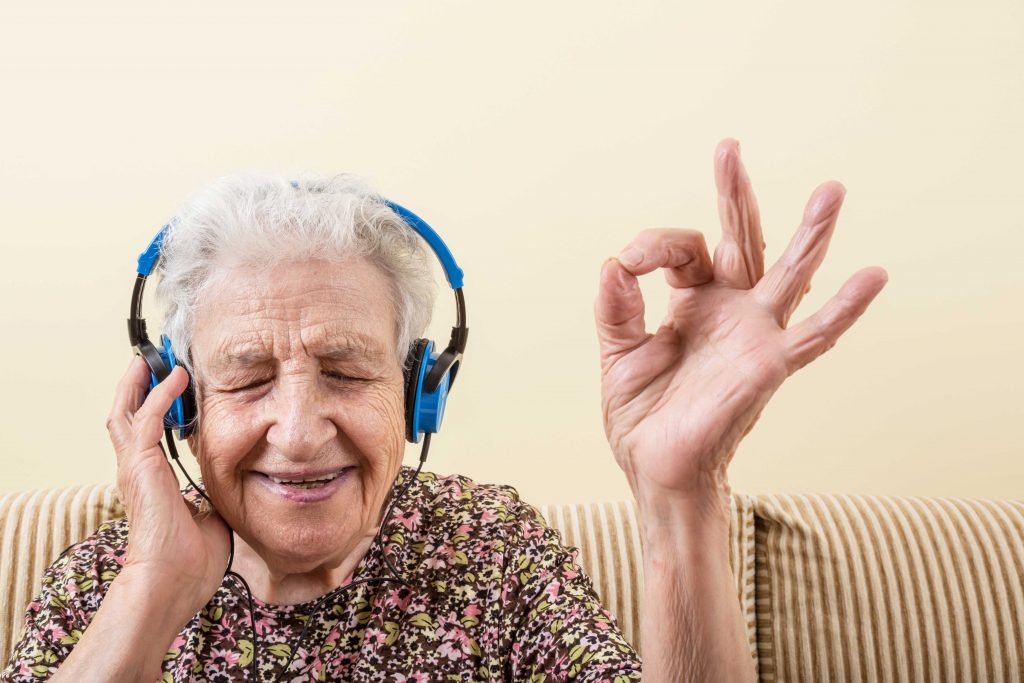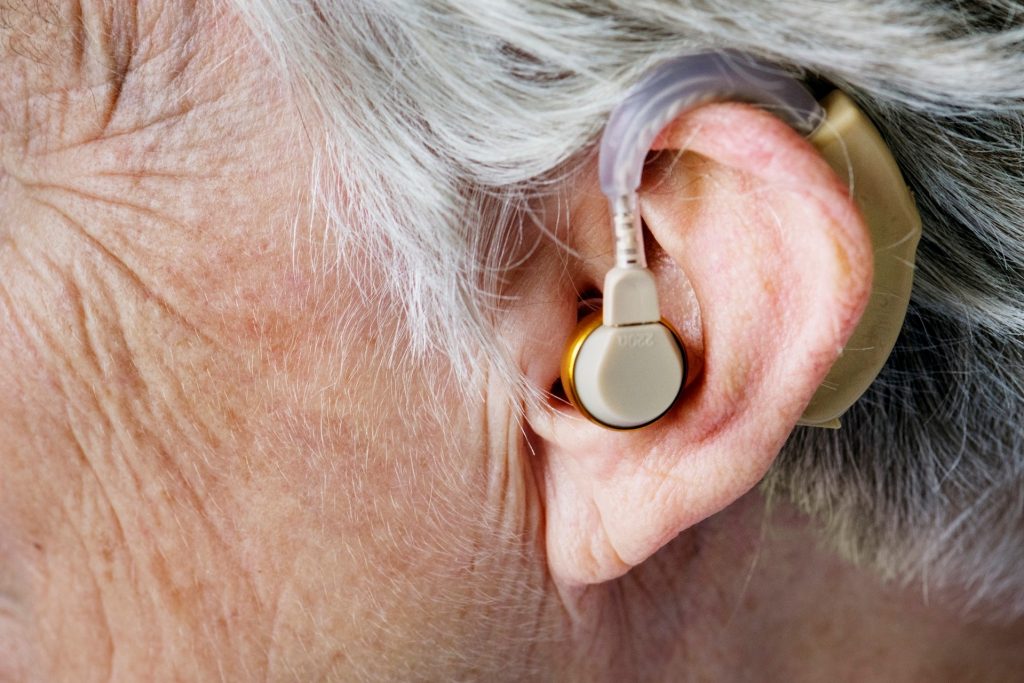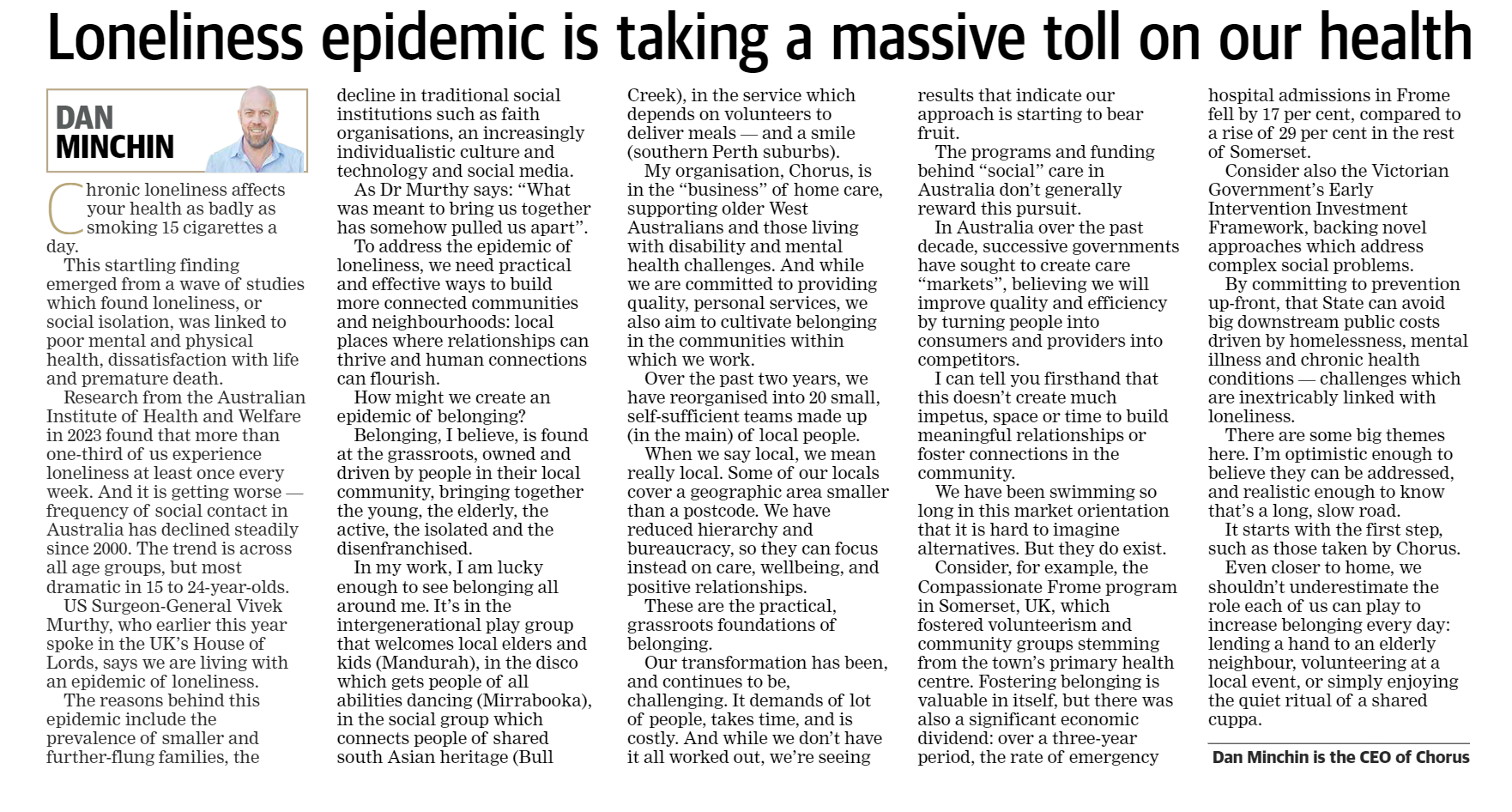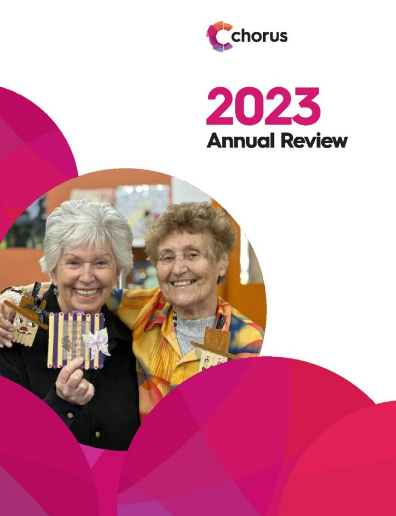 While hearing loss is perhaps something we expect as we get older, it’s not something we have to accept.
While hearing loss is perhaps something we expect as we get older, it’s not something we have to accept.
Experts say loss of hearing is linked to serious side effects, including:
- Cognitive decline
- Balance issues
- Relationship problems
- Mental health problems (including depression)
- Loneliness and social withdrawal
- Gut health issues.
That means if you or someone you love is having trouble hearing, it’s important to go see your doctor to get help.
There’s no shame in experiencing hearing problems
Lots of people experience some form of hearing loss. According to University of West Australia research published in The Gerontologist about 45 per cent of people aged 60 to 69 years old and 90 per cent of adults 80 or older live with some form of hearing loss.
It’s also quite common in younger people, with about 13 per cent of adults in their forties experiencing some form of hearing loss. So, it’s not an old-person problem.
Abolishing the myths around hearing loss and hearing aids

According to John Hopkins Medicine in the US, people wait an average of 10 years before getting help with problems with their hearing. The common reasons for the delay? They’ll be familiar to anyone trying to convince a loved one to get a hearing test:
- “My hearing’s not that bad”
- “Wearing hearing aids is for old people and I’m not old”
- “I don’t like the way hearing aids look”
- “I heard hearing aids are difficult to use”
- “Hearing aids are too expensive”.
Do any of these sound familiar?
The first thing to note is that not everyone with hearing problems needs a hearing aid. If you might have hearing loss, you can go for a hearing test and the doctor or audiologist will give you the best advice for dealing with your particular circumstances.
If you’re worried about the expense of a hearing aid, remember the Australian Government Hearing Services Program offers free or subsidised hearing assessments and hearing aids.
If you’re concerned about the look and usability of hearing aids, it might be reassuring to know that, these days, hearing aids vary in size, price, features and even the way they are placed in (or behind) the ear. The technology and design have come a long way from the hearing aid you might remember “Uncle Arthur” wearing in the old Comedy Company sketches!
The vital importance of treating hearing loss
 The UWA study also looked at the connection between hearing loss and depression.
The UWA study also looked at the connection between hearing loss and depression.
The study of almost 150,000 participants (who were all at least 60 years old) found older adults with some form of hearing loss were 47 per cent more likely to have symptoms of depression. This has been linked to people with hearing loss withdrawing from social occasions, like family events, and other noisy situations.
“We also know that older adults with hearing loss are more likely to experience mild cognitive decline and difficulty completing daily activities, which can have an additional negative impact on their quality of life and increase the risk of developing depression,” lead study author Blake Lawrence, from the Ear Science Institute Australia in Subiaco, told the Reuters news agency.
“It is therefore possible that changes during older age that are often described as a ‘normal part of aging’ may actually be contributing to the development of depressive symptoms in older adults with hearing loss,” Lawrence said.
Is it time to get a hearing test?
You or your loved one can get a hearing test at any time. Just ask your doctor for a referral to an audiologist.
For information on our aged care, disability or mental health support services, get in touch on 1800 264 268 or at chorus.org.au.



